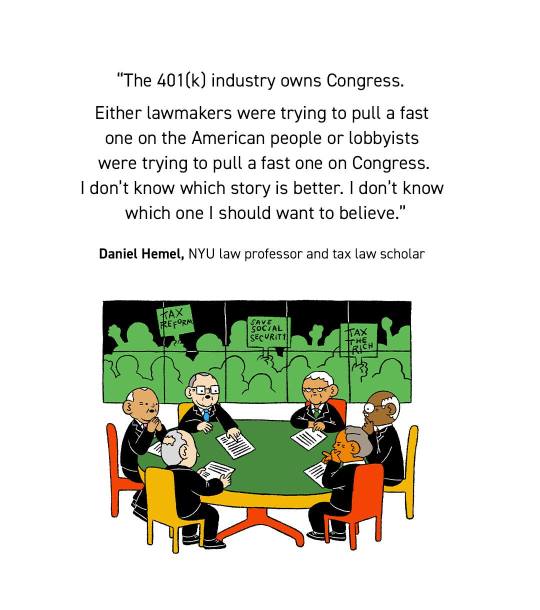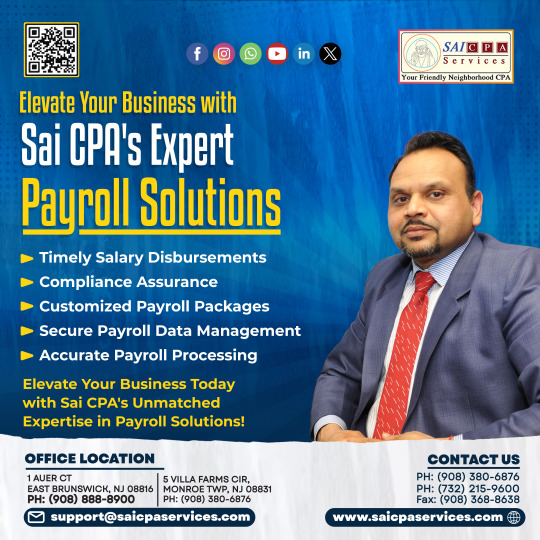#Tax-Advantaged Accounts
Text



x
#401(k)#savings#tax-advantaged retirement#bipartisan legislation#wealth gap#federal budget#financial industry#lobbying#retirement security#tax law#retirement savings#bipartisan#wealth disparities#federal deficit#financial services industry#tax-advantaged accounts#tax breaks#Congress#lobbyists#Social Security#Medicare
15 notes
·
View notes
Text
🤝 Make your charitable giving count! Learn how to maximize your impact and deductions with tax-efficient strategies. Support your favorite causes while optimizing your financial situation. Giving back has never been so rewarding.
#Charitable Giving#Tax Benefits#Tax-Advantaged Accounts#Itemize Deductions#Appreciated Assets#Bunching Donations#Qualified Charitable Distributions#Charitable Gift Annuities#Impact Investing#AGI Limits#Tax Professional
0 notes
Text
5 Essential IRA Rules to Know Before You Invest
Unlock the power of tax-advantaged savings with an IRA! Learn about the contribution limits, income requirements, and withdrawal rules to make the most of your retirement savings. Plus, discover the benefits of converting to a Roth IRA and avoid costly pe
Individual Retirement Accounts (IRAs) are a popular way for Americans to save for retirement. These tax-advantaged accounts allow individuals to contribute a certain amount of money each year, which can then grow tax-free until withdrawal. However, some certain rules and regulations govern IRAs, and it’s important to understand these before setting up or contributing to an IRA. Here are five key…

View On WordPress
#Contributions Limits#Financial advisor#Income Limits#IRA#Required Minimum Distributions#Retirement savings#Roth Conversion#Tax-advantaged accounts#Withdrawals
1 note
·
View note
Text


Unga bunga these take 3 hrs to make
#Artfight#Art#Hollers into the sky I'M MAKING AAART#Glad I still got it#Also was on vacay for the first two weeks of AF so thats. Great#Is it update time? Sure here's a quick life update#So I work at this tiny mom and pop shop right. Because they were so small they liked to take advantage of their workers#Aka me and literally 2 other people ever. I've been here for a year lmao#I always knew they were suspicious but it really came to a head when they accused me of stealing money#Btw they issued me a 1099 (the wrong tax form) so they already stole from me#I talked to the bank and had the delightful experience of slapping their account across the face with my guilt free hands#Metaphorically unfortunately#I'm gonna quit this week. I'm tired of these people. The drama was fun tho#Let's see. Ah! I just passed 1 1/2 years of Sky the other day!#More than the game itself I've become engrossed in the modding community hahaha#It's the weirdest little cranny of a fandom I've seen for such a large project#It's basically ONLY passed via word of mouth. And there's all sorts of fun drama happening within the discord(s) too#Idk this is just so funny to watch. Might get banned sooner or later but oh well. I've spent hundreds#It's their loss 🤪 and mine. Mostly mine. But also their loss 🤪#.... You know. My blog is small enough that I could post some funny stuff that I don't dare post anywhere else#Hehehuhuhu I just might. I have a lot of videos#OH SPEAKING OF VIDEOS I'm thinking of cleaning up all my old vids and publishing em to youtube#Apparently I just never did that#May as well dust off the ol' tube of yube and my handful of subs#I'll just post the unfinished ones unlisted as well. Why not!#Till next time. Hopefully soon
60 notes
·
View notes
Text
Enhance Financial Accuracy with SAI CPA Services' Payroll Solutions

Welcome back to the SAI CPA Services blog! Today, we’re highlighting how our payroll services can improve financial accuracy and streamline operations for your business.
The Importance of Professional Payroll Services
Managing payroll is one of the most critical yet complex tasks for any business. Here’s how our professional payroll services can benefit your business:
Accurate Payroll Processing: Timely and precise payroll processing is essential to maintain employee satisfaction and avoid legal issues. We ensure that your employees are paid accurately and on time, every time.
Compliance with Regulations: Payroll involves navigating a web of federal, state, and local regulations. Our experts stay up-to-date with the latest laws to ensure that your payroll processes comply with all relevant regulations, reducing the risk of penalties.
Time and Cost Efficiency: Outsourcing your payroll management to professionals allows you to save time and reduce overhead costs. We handle all aspects of payroll, freeing up your resources to focus on growing your business.
How SAI CPA Services Can Help
At SAI CPA Services, we provide comprehensive payroll solutions tailored to your business needs. Our services ensure accuracy, compliance, and efficiency, allowing you to manage your payroll with confidence and ease.
Connect Us: https://www.saicpaservices.com https://www.facebook.com/AjayKCPA https://www.instagram.com/sai_cpa_services/ https://twitter.com/SaiCPA https://www.linkedin.com/in/saicpaservices/ https://whatsapp.com/channel/0029Va9qWRI60eBg1dRfEa1I
908-380-6876
1 Auer Ct, 2nd Floor
East Brunswick, NJ 08816
#Sai Cpa Services#strategic planning#business growth#competitive advantage#business model#financial services#cpa#new jeresy#accounting#bookeeping#tax services#business#strategies#startup#enterprenuership#business plan#tax compliance#revenue
1 note
·
View note
Text
The HSA, HRA and FSA – which is right for you?
Navigating the differences between Health Savings Accounts (HSAs), Health Reimbursement Accounts (HRAs), and Flexible Spending Accounts (FSAs) can be challenging, but each offers unique ta x advantages for managing healthcare costs. HSAs are individually owned and must be paired with high-deductible health plans, allowing tax-free growth and rollover of unused funds. HRAs are employer-funded and reimburse employees for qualifying medical expenses, while FSAs let employees set aside pre-tax money for healthcare expenses but may have a "use it or lose it" policy.
#Health Savings Accounts#Flexible Spending Accounts#Health Reimbursement Accounts#Tax-advantaged health accounts
0 notes
Text
The HSA, HRA and FSA – which is right for you?
Navigating the differences between Health Savings Accounts (HSAs), Health Reimbursement Accounts (HRAs), and Flexible Spending Accounts (FSAs) can be challenging, but each offers unique tax advantages for managing healthcare costs. HSAs are individually owned and must be paired with high-deductible health plans, allowing tax-free growth and rollover of unused funds. HRAs are employer-funded and reimburse employees for qualifying medical expenses, while FSAs let employees set aside pre-tax money for healthcare expenses but may have a "use it or lose it" policy.
#Tax-advantaged health accounts#Direct-to-consumer pharmacy#Generic medicine discounts#Employer-sponsored health plans
0 notes
Text
Also, yeah, I'm 80% sure I will be moved at L2 by the end of the year, where I will most likely do 70% intelligence and 30% support to the other operations, depending on how many customers buy the service.
I also kinda want to learn some malware analysis because my co-workers make it look like the most amazing thing ever.
#ada.txt#there are some issues however with me getting promoted#first of which is... money talk and i need to check with an accountant that i don't actually end up losing money#taxation is weird in my country and completely stupid btw#because if i get taxed like 5% more than i am currently the extra money i would get would just cover the taxes#and i would have no advantage
0 notes
Text
The one weird monopoly trick that gave us Walmart and Amazon and killed Main Street

I'm coming to BURNING MAN! On TUESDAY (Aug 27) at 1PM, I'm giving a talk called "DISENSHITTIFY OR DIE!" at PALENQUE NORTE (7&E). On WEDNESDAY (Aug 28) at NOON, I'm doing a "Talking Caterpillar" Q&A at LIMINAL LABS (830&C).

Walmart didn't just happen. The rise of Walmart – and Amazon, its online successor – was the result of a specific policy choice, the decision by the Reagan administration not to enforce a key antitrust law. Walmart may have been founded by Sam Walton, but its success (and the demise of the American Main Street) are down to Reaganomics.
The law that Reagan neutered? The Robinson-Patman Act, a very boring-sounding law that makes it illegal for powerful companies (like Walmart) to demand preferential pricing from their suppliers (farmers, packaged goods makers, meat producers, etc). The idea here is straightforward. A company like Walmart is a powerful buyer (a "monopsonist" – compare with "monopolist," a powerful seller). That means that they can demand deep discounts from suppliers. Smaller stores – the mom and pop store on your Main Street – don't have the clout to demand those discounts. Worse, because those buyers are weak, the sellers – packaged goods companies, agribusiness cartels, Big Meat – can actually charge them more to make up for the losses they're taking in selling below cost to Walmart.
Reagan ordered his antitrust cops to stop enforcing Robinson-Patman, which was a huge giveaway to big business. Of course, that's not how Reagan framed it: He called Robinson-Patman a declaration of "war on low prices," because it prevented big companies from using their buying power to squeeze huge discounts. Reagan's court sorcerers/economists asserted that if Walmart could get goods at lower prices, they would sell goods at lower prices.
Which was true…up to a point. Because preferential discounting (offering better discounts to bigger customers) creates a structural advantage over smaller businesses, it meant that big box stores would eventually eliminate virtually all of their smaller competitors. That's exactly what happened: downtowns withered, suburban big boxes grew. Spending that would have formerly stayed in the community was whisked away to corporate headquarters. These corporate HQs were inevitably located in "onshore-offshore" tax haven states, meaning they were barely taxed at the state level. That left plenty of money in these big companies' coffers to spend on funny accountants who'd help them avoid federal taxes, too. That's another structural advantage the big box stores had over the mom-and-pops: not only did they get their inventory at below-cost discounts, they didn't have to pay tax on the profits, either.
MBA programs actually teach this as a strategy to pursue: they usually refer to Amazon's "flywheel" where lower prices bring in more customers which allows them to demand even lower prices:
https://www.youtube.com/watch?v=BaSwWYemLek
You might have heard about rural and inner-city "food deserts," where all the independent grocery stores have shuttered, leaving behind nothing but dollar stores? These are the direct product of the decision not to enforce Robinson-Patman. Dollar stores target working class neighborhoods with functional, beloved local grocers. They open multiple dollar stores nearby (nearly all the dollar stores you see are owned by one of two conglomerates, no matter what the sign over the door says). They price goods below cost and pay for high levels of staffing, draining business off the community grocery store until it collapses. Then, all the dollar stores except one close and the remaining store fires most of its staff (working at a dollar store is incredibly dangerous, thanks to low staffing levels that make them easy targets for armed robbers). Then, they jack up prices, selling goods in "cheater" sizes that are smaller than the normal retail packaging, and which are only made available to large dollar store conglomerates:
https://pluralistic.net/2023/03/27/walmarts-jackals/#cheater-sizes
Writing in The American Prospect, Max M Miller and Bryce Tuttle1 – a current and a former staffer for FTC Commissioner Alvaro Bedoya – write about the long shadow cast by Reagan's decision to put Robinson-Patman in mothballs:
https://prospect.org/economy/2024-08-13-stopping-excessive-market-power-monopoly/
They tell the story of Robinson-Patman's origins in 1936, when A&P was using preferential discounts to destroy the independent grocery sector and endanger the American food system. A&P didn't just demand preferential discounts from its suppliers; it also charged them a fortune to be displayed on its shelves, an early version of Amazon's $38b/year payola system:
https://pluralistic.net/2022/11/28/enshittification/#relentless-payola
They point out that Robinson-Patman didn't really need to be enacted; America already had an antitrust law that banned this conduct: section 2 of the the Clayton Act, which was passed in 1914. But for decades, the US courts refused to interpret the Clayton Act according to its plain meaning, with judges tying themselves in knots to insist that the law couldn't possibly mean what it said. Robinson-Patman was one of a series of antitrust laws that Congress passed in a bid to explain in words so small even federal judges could understand them that the purpose of American antitrust law was to keep corporations weak:
https://pluralistic.net/2023/04/14/aiming-at-dollars/#not-men
Both the Clayton Act and Robinson-Patman reject the argument that it's OK to let monopolies form and come to dominate critical sectors of the American economy based on the theoretical possibility that this will lead to lower prices. They reject this idea first as a legal matter. We don't let giant corporations victimize small businesses and their suppliers just because that might help someone else.
Beyond this, there's the realpolitik of monopoly. Yes, companies could pass lower costs on to customers, but will they? Look at Amazon: the company takes $0.45-$0.51 out of every dollar that its sellers earn, and requires them to offer their lowest price on Amazon. No one has a 45-51% margin, so every seller jacks up their prices on Amazon, but you don't notice it, because Amazon forces them to jack up prices everywhere else:
https://pluralistic.net/2024/03/01/managerial-discretion/#junk-fees
The Robinson-Patman Act did important work, and its absence led to many of the horribles we're living through today. This week on his Peoples & Things podcast, Lee Vinsel talked with Benjamin Waterhouse about his new book, One Day I’ll Work for Myself: The Dream and Delusion That Conquered America:
https://athenaeum.vt.domains/peoplesandthings/2024/08/12/78-benjamin-c-waterhouse-on-one-day-ill-work-for-myself-the-dream-and-delusion-that-conquered-america/
Towards the end of the discussion, Vinsel and Waterhouse turn to Robinson-Patman, its author, Wright Patman, and the politics of small business in America. They point out – correctly – that Wright Patman was something of a creep, a "Dixiecrat" (southern Democrat) who was either an ideological segregationist or someone who didn't mind supporting segregation irrespective of his beliefs.
That's a valid critique of Wright Patman, but it's got little bearing on the substance and history of the law that bears his name, the Robinson-Patman Act. Vinsel and Waterhouse get into that as well, and while they made some good points that I wholeheartedly agreed with, I fiercely disagree with the conclusion they drew from these points.
Vinsel and Waterhouse point out (again, correctly) that small businesses have a long history of supporting reactionary causes and attacking workers' rights – associations of small businesses, small women-owned business, and small minority-owned businesses were all in on opposition to minimum wages and other key labor causes.
But while this is all true, that doesn't make Robinson-Patman a reactionary law, or bad for workers. The point of protecting small businesses from the predatory practices of large firms is to maintain an American economy where business can't trump workers or government. Large companies are literally ungovernable: they have gigantic war-chests they can spend lobbying governments and corrupting the political process, and concentrated sectors find it comparatively easy to come together to decide on a single lobbying position and then make it reality.
As Vinsel and Waterhouse discuss, US big business has traditionally hated small business. They recount a notorious and telling anaecdote about the editor of the Chamber of Commerce magazine asking his boss if he could include coverage of small businesses, given the many small business owners who belonged to the Chamber, only to be told, "Over my dead body." Why did – why does – big business hate small business so much? Because small businesses wreck the game. If they are included in hearings, notices of inquiry, or just given a vote on what the Chamber of Commerce will lobby for with their membership dollars, they will ask for things that break with the big business lobbying consensus.
That's why we should like small business. Not because small business owners are incapable of being petty tyrants, but because whatever else, they will be petty. They won't be able to hire million-dollar-a-month union-busting law-firms, they won't be able to bribe Congress to pass favorable laws, they can't capture their regulators with juicy offers of sweet jobs after their government service ends.
Vinsel and Waterhouse point out that many large firms emerged during the era in which Robinson-Patman was in force, but that misunderstands the purpose of Robinson-Patman: it wasn't designed to prevent any large businesses from emerging. There are some capital-intensive sectors (say, chip fabrication) where the minimum size for doing anything is pretty damned big.
As Miller and Tuttle write:
The goal of RPA was not to create a permanent Jeffersonian agrarian republic of exclusively small businesses. It was to preserve a diverse economy of big and small businesses. Congress recognized that the needs of communities and people—whether in their role as consumers, business owners, or workers—are varied and diverse. A handful of large chains would never be able to meet all those needs in every community, especially if they are granted pricing power.
The fight against monopoly is only secondarily a fight between small businesses and giant ones. It's foundationally a fight about whether corporations should have so much power that they are too big to fail, too big to jail, and too big to care.

Community voting for SXSW is live! If you wanna hear RIDA QADRI and me talk about how GIG WORKERS can DISENSHITTIFY their jobs with INTEROPERABILITY, VOTE FOR THIS ONE!

If you'd like an essay-formatted version of this post to read or share, here's a link to it on pluralistic.net, my surveillance-free, ad-free, tracker-free blog:
https://pluralistic.net/2024/08/14/the-price-is-wright/#enforcement-priorities
#pluralistic#Robinson-Patman Act#ftc#alvaro bedoya#monopoly#monopsony#main street#too big to jail#too big to care#impunity#regulatory capture#prices#the american prospect#Max M Miller#Bryce Tuttle#a and p#wright patman
2K notes
·
View notes
Text
Exploring Roth IRA Accounts: Tax-Advantaged Investing for Retirement
Written by Delvin
As you plan for your retirement, it’s crucial to consider different investment options that can help you grow your savings while enjoying tax advantages. One such option is the Roth Individual Retirement Account (IRA). In this blog post, we’ll explore the features, benefits, and considerations of Roth IRA accounts, empowering you to make informed decisions about your retirement…
View On WordPress
#After-tax contributions#Backdoor Roth IRA#dailyprompt#Estate planning with Roth IRA#Financial#Financial Literacy#Investment options#Retirement accounts#Retirement income#Retirement investment options#Retirement planning#Retirement savings#Retirement savings strategies#Retirement tax planning#Roth IRA#Roth IRA benefits#Roth IRA conversion#Roth IRA eligibility#Roth IRA vs. traditional IRA#Tax-advantaged investing#Tax-efficient savings#Tax-free growth#Tax-free withdrawals
1 note
·
View note
Text
Basically. I got screwed.
I am very sorry for how relatively quiet this blog has been but I've been dealing with a very unpleasant situation the last few months, and now I need help.
Essentially, I tried to help someone out, and she took advantage of me, and I have no way to recoup my losses.
Earlier this year, I moved into a new house. Before we sold the old house, a Now-Former friend ran into some trouble and was about to become homeless with pets and a small child. Not wanting them to be on the street, we offered to hold off selling the old house so she could stay there for a little while, if she could pay the cost of the mortgage on that house (because I could afford one mortgage but not two) while we helped her find somewhere more permanent.
I was not making money from this- since I was still paying the utilities and property taxes, I was actually losing money, but willing to soak that in order to help her save up and get her on her feet.
Instead, she:
Never Paid a Dime towards covering the mortgage costs like she agreed ($12,000 for the nine months she was there)
Trashed the house ($500 dump fees for the trash alone)
Let her pets piss and shit all over the house ($1,500 bio hazard cleanup, $4000 to replace the carpet and other damaged flooring)
Caused an electrical issue in the garage ($900 to repair)
Broke the washer, dryer and refrigerator ($2500 to replace)
Broke the fence ($1000 to repair)
When I told her I could no longer financially support her and that I needed to sell the old house, she illegally squatted there for a solid three months and I had to hire a lawyer and actually take her to court to get her to leave ($2,500)
The resulting stress has been, as you can imagine, stressful.
So stressful, in fact, that it aggravated a the medical conditions my husband had and made him extremely sick. He had to go to the hospital and take time off work to recover. Now the health insurance is trying to weasel out of paying his short-term disability claim.
So net, this woman has managed to cost me around $25,000 and that's not taking into account the missed paychecks and medical expenses. I do not have $25,000, and until at least $13,000 of that is spent to repair the damage she did, I legally cannot sell the house to even begin to recoup my losses.
Theoretically, I could sue this woman, but she doesn't have any money and it would be me paying even more money I don't have to get... Nothing. So I'm asking for help to cover the costs of getting the old house ready to sell, my husband's medical expenses, and other expenses incurred by this debacle:
If you can help out in any way-share, donate spare change, anything- I'd be extremely grateful.
Thank you.
7K notes
·
View notes
Text
financial knowledge for the girlies 🤍🍓💸


Develop a budget: Creating and sticking to a budget can help you better understand your income and expenses, and learn how to prioritize your spending.
Save regularly: Saving money is crucial for achieving financial stability. You can set up automatic transfers to a savings account so you won't be tempted to spend the money.
Pay off debt: High-interest debt can hinder your financial progress. Make a plan to pay off your debts and focus on high-interest debts first.
Invest wisely: Investing can help your money grow over time. Look for low-cost index funds, which can give you broad exposure to the market at a low cost.
Understand compound interest: Compound interest is the interest you earn on interest. By investing consistently, the power of compound interest can help you build wealth over time.
Research before making big financial decisions: Before making a major decision, such as buying a house or car, research different options and weigh the costs and benefits.
Learn from your mistakes: Every failure or setback can teach you something valuable. Use these experiences to inform your future financial decisions.
Get professional advice: Seek advice from a financial advisor if you're unsure about your financial decisions. They can provide guidance on investments, retirement planning, and tax strategies.
Be aware of scams: Scammers can take advantage of financial illiteracy. Be cautious when someone offers an investment that's too good to be true.
Continuous learning: Financial knowledge is constantly changing, so stay informed by regularly reading financial news, books, and attending classes or webinars.
#money#hyper feminine#light feminine#pink moodboard#pink pilates princess#soft moodboard#that girl#beautytips#confidence#beauty#fashion#old money#strategies#job#budget#management#businesses#girlblogger#this is a girlblog#girlblogging#gaslight gatekeep girlboss#girlblog aesthetic#wonyoungism#it girl energy#becoming that girl#glow up#rich aesthetic#eat the rich#wealth#rich life
2K notes
·
View notes
Text
Reasons Why Hiring An Accounting Firm Is Advantageous

Whether you run a small business, or a garage startup, with time, your business will grow. Then, handling finances and other costs can get tricky and difficult. You will have more revenue, more clients, and more employees. An accounting firm can help you by taking over the whole financial sector of your business. They avoid any fraud or mistranslations in your company. By hiring accounting firms, you get the best financial advice that you can apply to your business strategy.
0 notes
Text
Secure Your Non-Profit’s Future with Expert Tax Services

Welcome back to the SAI CPA Services blog! Today, we’re focusing on the unique tax challenges faced by non-profits and how our
non-profit tax services can help you secure your organization’s future.
The Importance of Specialized Non-Profit Tax Services
Non-profit organizations operate under different tax regulations compared to for-profit businesses. Here’s how our specialized tax services can benefit your non-profit:
501(c)(3) Approval Assistance: Obtaining and maintaining 501(c)(3) status is crucial for non-profits to receive tax-exempt status and qualify for grants. We guide you through the application process, ensuring all requirements are met for approval.
Compliance with Tax Laws: Non-profits must adhere to strict tax regulations to maintain their tax-exempt status. Our experts ensure that your organization complies with all IRS rules and reporting requirements, reducing the risk of penalties.
Maximizing Tax Benefits: We help you take full advantage of available tax deductions and credits, allowing your non-profit to maximize its resources and focus on its mission.
How SAI CPA Services Can Help
At SAI CPA Services, we specialize in providing tailored tax services for non-profits. Our experienced team understands the complexities of non-profit tax law and works diligently to ensure your organization’s financial health and compliance.
Connect Us: https://www.saicpaservices.com https://www.facebook.com/AjayKCPA https://www.instagram.com/sai_cpa_services/ https://twitter.com/SaiCPA https://www.linkedin.com/in/saicpaservices/ https://whatsapp.com/channel/0029Va9qWRI60eBg1dRfEa1I
908-380-6876
1 Auer Ct, 2nd Floor
East Brunswick, NJ 08816
#Sai Cpa Services#strategic planning#business growth#competitive advantage#business model#financial services#cpa#new jeresy#accounting#bookeeping#tax services#business#strategies#startup#enterprenuership#business plan#tax compliance#revenue
0 notes
Text
CREVH - GOLD

QuickBooks is a renowned accounting software that offers a seamless solution for small businesses to manage their financial tasks efficiently. With features designed to streamline accounting processes, QuickBooks simplifies tasks such as tracking receipts, income, bank transactions, and more. This software is available in both online and desktop versions, catering to the diverse needs of businesses of all sizes. QuickBooks Online, for instance, allows users to easily track mileage, expenses, payroll, send invoices, and receive payments online, making it a comprehensive tool for financial management. Moreover, QuickBooks Desktop provides accountants with exclusive features to save time and enhance productivity. Whether it's managing income and expenses, staying tax-ready, invoicing, paying bills, managing inventory, or running reports, QuickBooks offers a range of functionalities to support businesses in their accounting needs.
Utilizing qb accounting software purposes comes with a myriad of benefits that can significantly enhance business operations. Some key advantages of using QuickBooks include:
- Efficient tracking of income and expenses
- Simplified tax preparation and compliance
- Streamlined invoicing and payment processes
- Effective management of inventory
- Generation of insightful financial reports
- Integration with payroll and HR functions
These benefits not only save time and effort but also contribute to better financial decision-making and overall business growth. QuickBooks is designed to meet the diverse needs of businesses, offering tailored solutions for various industries and sizes.
When considering accounting qb software options, QuickBooks stands out as a versatile and comprehensive choice. To provide a holistic view, let's compare QuickBooks with two other popular accounting software options - Xero and FreshBooks. quick book accounting package and offers robust features for small businesses, including advanced accounting capabilities, invoicing, payment processing, and payroll management. Xero, on the other hand, is known for its user-friendly interface and strong collaboration features, making it a popular choice among startups and small businesses. FreshBooks excels in invoicing and time tracking functionalities, catering to freelancers and service-based businesses. By evaluating the features, pricing, and user experience of these accounting software options, businesses can make an informed decision based on their specific needs and preferences.
555 notes
·
View notes
Text
Wealth Building: What Rich People Do Differently
Wealthy people prioritize learning about personal finance, investing, and wealth building strategies. They always strive to gain more knowledge in these areas.
They maintain a long term perspective when setting financial goals and are patient in their pursuits.
Wealthy people diversify their investments across various asset classes to manage their risk.
Many of them are entrepreneurs who create and manage businesses as a means to build wealth.
They build and nurture professional networks opens doors to opportunities for investments, partnerships, and business growth.
They set clear, specific financial goals and regularly review and adjust their strategies to stay on track.
Wealthy individuals exercise discipline in their spending habits, avoiding impulse purchases and consistently saving and investing.
They assess and manage investment risks carefully, often with the guidance of financial advisors.
Many engage in philanthropy and charitable giving, recognizing the importance of supporting their communities and causes they care about.
Wealthy people invest in their personal development, acquiring new skills and knowledge to increase their earning potential or make better investment decisions.
They use legal tax strategies to minimize tax liabilities, such as tax advantaged accounts and tax efficient investments.
Legal structures like trusts and estate planning are employed to safeguard assets and facilitate smooth wealth transfer.
Wealthy people can adapt to changing economic conditions and market trends by diversifying income sources and investments.
Building wealth often involves overcoming setbacks and failures, and the wealthy demonstrates the result of persistence in their pursuit of financial success.
They have a positive and growth oriented mindset drives their belief in their ability to succeed and willingness to take calculated risks.
They prioritize acquiring and growing assets, emphasizing that assets generate income and wealth over time.
They are cautious about spending in liabilities (Things that do not make you money) and maximize their assets (add value) and those that detract from wealth (liabilities).
Instead of working solely for money, they make money work for them.
When they indulge in luxury purchases, they do so using returns on their investments rather than the money they earn or have saved.
#finance#investment#financial planning#investing#entrepreneur#girl math#generationalwealth#rich#success mindset#wealth
1K notes
·
View notes